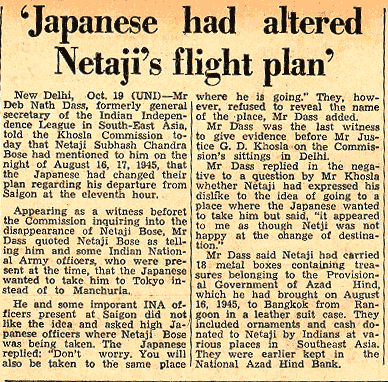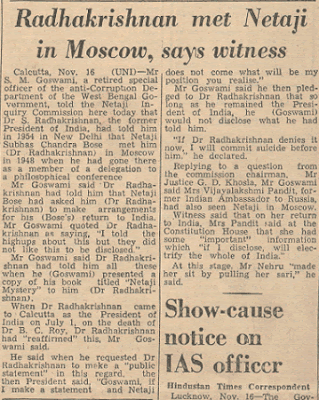How did the ISIS (IS) Originate? - the True Story
PC: The Atlantic
Syria - what's happening?
Syria- a country with thousands of years of rich history, starting from the Roman empire to the fall of Ottoman empire, it was always the jewel of this world. But now, the situation has changed. Since the last 5 years, this great country is aflamed with extreme violence killing more than 270,000 people and more than 10 million Syrians fled from their homes after the outbreak of Civil war, reducing the population to less than half (Before the outbreak, the population of Syria was 22.5 million while the outbreak reduced it to less than 10 million).
Every single day in Syria is a blood-shed, everyday is a devastation, everyday is a hell. It all started in 2011 when a mass of young people who protested against Bashar-al-Assad's rule were tortured. Since then, Assad's army started to kill the rebellion. The world's most deadliest terrorist group IS (Islamic State) crawled in-between and started to occupy the country. The damage multiplied when US, NATO, Russia, Britain, France and many started their attacks. The desolation of common citizens became a routine in the name of war between each other.
 |
| Aylan Kurdi, a toddler whose body got washed up to the shore of Turkish beach shocked the entire world |
European countries are moved after this incident and started accepting thousands of refugees from Syria. The picture stands as a symbol of Syrian sufferings.
What is the origin of IS? Do West have something to do with it?
West's involvement?
Did everything start with the Ottoman empire?
Iraq, once used to be called as the 'Cradle of civilization' was the center of knowledge, glory and technology. The world's famed Mesopotamian civilization took birth in the same soil. It was started by Oghuz Turks under Osman I to unite all the Muslims in the world. After 600 years of glory, due to fight between the tribes, internal conflicts got worsened. During the first world war, the Ottoman was forced to join the Germany as they lost the Balkan wars. Also, in order to protect their oil reserves, they joined Germany. Ultimately, they ended up losing the war and in fact, their territory.
During the war, Mark Sykes of Britain and Francois Georges Picot of France started carving on the map of the Ottoman to divide it into territories for the mutual benefits of France, Britain and Russia (popularly known as Sykes-Picot agreement). The 14.63 million square kilometer empire (1.5 times the size of US) was divided into 60 parts just with a scale without considering the ethnic group distribution, mountains and waters (that's why most of the Islamic countries have very straight borders). To keep things simple, they ought to this carelessly and thus failed to estimate the damage it would cause to the globe.
There are three dominant sects in Muslims (though people say only 2) Sunnis, Shias and Kurdish. Though the Kurdish are also Sunnis, they mean Arab Sunnis and Kurdish Sunnis. As a result of the agreement, most of these groups were sliced apart. As a result, one of the group became minority leading to discrimination and domination by the other. This led to terrible internal chaos in the newly formed states.
In Iraq, Sunnis turned to be the majority and most of the Shia majority had gone to Iran. Kurdish were minority in all the states and there was no separate country for them. Things were hot from the beginning, each group trying to dominate the other. As a result, insecurity grew among the minorities.

The Iraq's Story
By 1968, Iraq was under the control of Sunni Ba'ath party under the Ahmed Hassan Al-Bakr's presidential rule supported by Saddam Hussein as vice-president and general. In the next years, Saddam Hussein's popularity was increased to such an extent that Al-Bakr was forced to give away his rule to Hussein by 1979.
Everything had changed after Hussein became the President. He suppressed Shias in every manner possible and their executions became common. In 1979, he started a war with Iran when it moved with the Islamic rebellion thinking that it would inspire Shias in Iraq. In the war and the aftermath, 100,000 Iraqi lives were lost. Kurds in Iraq never wished to be a part of it. As a result, they tried to get control of the situation but failed when Saddam Hussein launched al-Anfal, a genocide campaign on Kurdish North in 1988. It resulted in the death of 150,000 Kurds. Hussein, immediately after the Iran-Iraq war, started the Persian gulf war on Kuwait for its delicious oil reserves. Another attempt to overthrow Hussein failed and it killed 120,000 people (In this war, Kuwait was supported by 34 coalition nations). Due to the course of events, extreme dissent grew among Kurds and Shias.
Here's the most tricky part!
Though the Gulf war was won by coalition nations, the intervention of US in the war was considered most tricky. Most of the Arab nations didn't like it. It was assumed that the interest of oil reserves made many countries involved.
After the 9/11 attacks, Iraq was falsely alleged as the hub for Al-Queda though it was an internal activity. Though the UN report showed that Iraq isn't involved with the attacks, US didn't mind. Along with Britain, France and Germany, it started bombing Iraq which left thousands of casualties. Finally, the interest of US and its allies on Iraq became an open secret. In a short while, by 2003, Saddam Hussein was thrown out of power and was executed in 2006.
Initially, Iraqis felt that their lives would be peaceful under the American control. After the days grew up, Iraqi civilians were often mistreated, tortured and killed by US. This united all the anti-American protestants to fight against US and allies. Moreover, all the war prisoners were kept in Bucca camp (Southern Iraq) which helped spread Al-Queda propaganda. The emir of IS, Abu Bakr al-Baghdadi, who is considered as the most powerful and dangerous terrorist leader in the world, got his followers from this camp. He became the leader of Iraqi al-Queda by the end of 2010. Indirectly, this camp served as the platform to sketch a plot for their strengthening which would never be possible if they were in Baghdad.
The origin of ISIS can be traced back to 1999- when Abu Musab al-Zarqawi started it. Later, in early 2000's, he swore allegiance to Al-Queda and hence it was called as Al-Queda of Iraq (AQI). Later, the group became weaker and weaker after his death in 2007. Baghdadi got the group in track by re-branding it as ISIS. After the US troops withdrew from Iraq in 2011, the group then started to seize the neighboring parts of Iraq and now dominates most of the parts of Iraq and Syria.
Later in 2012, after the end of Qaddafi's regime, reports revealed that CIA with the utmost co-operation of MI6, transferred the weapons from Libya to the hands of Syrian rebels. Also, it is said that US and allies want ISIS to be existed then so that it would not trouble them in getting oil from Iraq and Syria. Unaccordingly, the plan was reversed when ISIS emerged as a very powerful terrorist group that it is not in a stage of being controlled, it's in a stage of controlling.
The fact that ISIS became so strong because of the mistreatment & torture of Iraqi citizens by allies cannot be denied. If it was not so, IS could not have dug their terrorist ideas deeply into Iraq and Syria. IS would have still existed, but not this deadly. It is clear now that ISIS cannot be destroyed by the same powers which brought it to Iraq and Syria. The endless military interventions in the Middle East have done nothing except the destruction and devastation. Now, it is impossible to uproot ISIS unless all the nations work unitedly leaving their political games.
West's involvement?
Did everything start with the Ottoman empire?
Iraq, once used to be called as the 'Cradle of civilization' was the center of knowledge, glory and technology. The world's famed Mesopotamian civilization took birth in the same soil. It was started by Oghuz Turks under Osman I to unite all the Muslims in the world. After 600 years of glory, due to fight between the tribes, internal conflicts got worsened. During the first world war, the Ottoman was forced to join the Germany as they lost the Balkan wars. Also, in order to protect their oil reserves, they joined Germany. Ultimately, they ended up losing the war and in fact, their territory.
During the war, Mark Sykes of Britain and Francois Georges Picot of France started carving on the map of the Ottoman to divide it into territories for the mutual benefits of France, Britain and Russia (popularly known as Sykes-Picot agreement). The 14.63 million square kilometer empire (1.5 times the size of US) was divided into 60 parts just with a scale without considering the ethnic group distribution, mountains and waters (that's why most of the Islamic countries have very straight borders). To keep things simple, they ought to this carelessly and thus failed to estimate the damage it would cause to the globe.
There are three dominant sects in Muslims (though people say only 2) Sunnis, Shias and Kurdish. Though the Kurdish are also Sunnis, they mean Arab Sunnis and Kurdish Sunnis. As a result of the agreement, most of these groups were sliced apart. As a result, one of the group became minority leading to discrimination and domination by the other. This led to terrible internal chaos in the newly formed states.
In Iraq, Sunnis turned to be the majority and most of the Shia majority had gone to Iran. Kurdish were minority in all the states and there was no separate country for them. Things were hot from the beginning, each group trying to dominate the other. As a result, insecurity grew among the minorities.

The Iraq's Story
By 1968, Iraq was under the control of Sunni Ba'ath party under the Ahmed Hassan Al-Bakr's presidential rule supported by Saddam Hussein as vice-president and general. In the next years, Saddam Hussein's popularity was increased to such an extent that Al-Bakr was forced to give away his rule to Hussein by 1979.
 |
| Saddam Hussein |
Here's the most tricky part!
Though the Gulf war was won by coalition nations, the intervention of US in the war was considered most tricky. Most of the Arab nations didn't like it. It was assumed that the interest of oil reserves made many countries involved.
After the 9/11 attacks, Iraq was falsely alleged as the hub for Al-Queda though it was an internal activity. Though the UN report showed that Iraq isn't involved with the attacks, US didn't mind. Along with Britain, France and Germany, it started bombing Iraq which left thousands of casualties. Finally, the interest of US and its allies on Iraq became an open secret. In a short while, by 2003, Saddam Hussein was thrown out of power and was executed in 2006.
Initially, Iraqis felt that their lives would be peaceful under the American control. After the days grew up, Iraqi civilians were often mistreated, tortured and killed by US. This united all the anti-American protestants to fight against US and allies. Moreover, all the war prisoners were kept in Bucca camp (Southern Iraq) which helped spread Al-Queda propaganda. The emir of IS, Abu Bakr al-Baghdadi, who is considered as the most powerful and dangerous terrorist leader in the world, got his followers from this camp. He became the leader of Iraqi al-Queda by the end of 2010. Indirectly, this camp served as the platform to sketch a plot for their strengthening which would never be possible if they were in Baghdad.
 |
| Bucca Camp In Southern Iraq |
The origin of ISIS can be traced back to 1999- when Abu Musab al-Zarqawi started it. Later, in early 2000's, he swore allegiance to Al-Queda and hence it was called as Al-Queda of Iraq (AQI). Later, the group became weaker and weaker after his death in 2007. Baghdadi got the group in track by re-branding it as ISIS. After the US troops withdrew from Iraq in 2011, the group then started to seize the neighboring parts of Iraq and now dominates most of the parts of Iraq and Syria.
 |
| PC:The Atlantic |
Later in 2012, after the end of Qaddafi's regime, reports revealed that CIA with the utmost co-operation of MI6, transferred the weapons from Libya to the hands of Syrian rebels. Also, it is said that US and allies want ISIS to be existed then so that it would not trouble them in getting oil from Iraq and Syria. Unaccordingly, the plan was reversed when ISIS emerged as a very powerful terrorist group that it is not in a stage of being controlled, it's in a stage of controlling.
The fact that ISIS became so strong because of the mistreatment & torture of Iraqi citizens by allies cannot be denied. If it was not so, IS could not have dug their terrorist ideas deeply into Iraq and Syria. IS would have still existed, but not this deadly. It is clear now that ISIS cannot be destroyed by the same powers which brought it to Iraq and Syria. The endless military interventions in the Middle East have done nothing except the destruction and devastation. Now, it is impossible to uproot ISIS unless all the nations work unitedly leaving their political games.
.png)



























.jpg)





